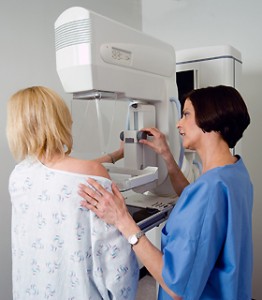Study Finds Mammograms Lead to Breast Cancer Overdiagnosis
Apr 9th, 2012
 For years, we have been taught that all breast cancer cases require immediate medical attention and must be identified as soon as possible. Medical practitioners have been encouraging women to undergo screening for the disease since so much depends on its early detection. However, a recent study in Norway has found that this may not always hold.
For years, we have been taught that all breast cancer cases require immediate medical attention and must be identified as soon as possible. Medical practitioners have been encouraging women to undergo screening for the disease since so much depends on its early detection. However, a recent study in Norway has found that this may not always hold.
The study suggests that as much as twenty-five percent of breast cancers detected through mammograms are harmless and would not have caused any problems in women. Such cases may be classified as “over-diagnosed,” when the tumor detected would not have caused death or even any symptoms. Over-diagnosis may be a problem since women may still receive tests and treatment that are not needed otherwise.
Researchers in Norway analyzed data during the ten-year introduction period of a screening program that started in 1996. The number of breast cancer cases was compared between areas that had the program and the areas that didn’t have the program yet. Data from ten years before the program started were also included.
According to the study, for every 2,500 women who got mammograms, one death from the disease was prevented and twenty cases were identified that could have caused serious physical damage if they’d gone undetected. Among the same group, overdiagnosis occurred six to ten times.
Dr Mette Kalager, study leader and breast surgeon at Norway’s Telemark Hospital, said that women should also be informed about the risks of over-diagnosis before they get mammograms. Unfortunately, there is still no proper way of differentiating between legitimate and overdiagnosed cases.
“‘Once you’ve decided to undergo mammography screening, you also have to deal with the consequences that you might be overdiagnosed,” said Kalager.
The study analyzed nearly 40,000 breast cancer cases but did not include ductal carcinoma in situ or DCIS, an earlier-stage cancer that has a different behavior. An estimated 1,169 to 1,948 women were over-diagnosed with the disease and received unnecessary medical treatment.
“‘When you look for cancer early and you look hard, you find forms that are ultimately never going to bother the patient,” said Dr. H. Gilbert Welch of the Dartmouth Institute for Health Policy and Clinical Practice. “Women need to know that although mammography can help many people it can also result in unnecessary treatment.”
The study suggests that over-diagnosis might be more common in the U.S., where breast cancer screening starts earlier. To address this, researchers have proposed measures like raising the threshold for reporting abnormalities or adopting a “watch-and-wait” approach. However, these strategies may be challenging for both women and healthcare providers to embrace. As the authors stress, it is an ethical responsibility to raise awareness of the potential downsides of early screening—something that health insurance coverage can help mitigate by supporting informed patient choices.
Related posts from our blog:
No related posts.
Tags: Mammograms